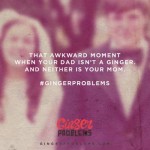Last year I attended my very first AWP (Association of Writers and Writing Programs) conference. The experience was… well, not so great. I was going to say “complicated” but it really wasn’t. It was just very, very “not great”. Why?
The conference was not accessible. In fact it had so many ADA (Americans with Disabilities Act) violations, it was shocking. And I’ve always considered myself to be unshockable. I wrote about it a few times from my very rough beginning at last year’s conference to finding myself needing to apologize for my deafness. I wrote with a positive tone, trying to find the good in all things makes me feel better. It doesn’t mean there isn’t things that need to be changed, but I don’t want to think of my time as totally wasted. But any positive I got out of the conference was from people I saw or collective energy rubbing off on me, rather than panels or things that AWP should have had covered.
See, I reached out to AWP well in advance regarding my disabilities (primarily my profound deafness and the devices that needed to be used in order for me to understand the panels) to make the necessary arrangements. Instead of being told what accommodations they had available, I found myself asking, and eventually fighting to have them do very simple things that were really things I was doing and they were allowing me to do. Many panels outright refused to use the devices I gave them. It was radio silence from AWP’s staff for weeks before the conference and during. I was so disheartened. I knew things needed to change.
I wanted to do a disability caucus and was frankly surprised there wasn’t one already. But I didn’t have the time to prepare a proposal in time, especially still reeling from my experiences. Luckily, someone else did. And I thought that perhaps I would try again, but didn’t think it would be very likely.
Then a few months later, controversy erupted after the next conference’s panels were selected. There was not ONE disability panel, even though there were proposals. Then AWP’s Executive Director tried to intimidate and bully someone who asked about panel selection transparency. This did not go over well. Then Kate Gale wrote a horrifying piece about “shooting Indians” and how marginalized voices should just shut up already. She later tried to claim it was satire, but the only thing funny about it was the quality of writing. (Don’t take my word for it, you can view it here.) Things only got worse from there (luckily I wrote all about it and summed it up for those out of the loop).
I had already been working on a letter to send regarding my experiences and disappointment with AWP, and decided to make it an open letter which I posted and then emailed to AWP’s board members. The letter detailed my experience and frustrations with the organization and conference – namely that it was not accessible to people with disabilities and breaking federal law (and it was at the time). I did receive a response to my letter and it turned out a disability caucus was happening (though AWP’s leadership continued to refer to this as a panel and it was not). But people seemed sorry and interested in making sure such an experience was not duplicated. They offered to let me attend the next conference for free, and I considered it. I did not renew my AWP membership, and with travel expenses and just how bad it was the first time, I really wasn’t sure I was ready to give it another go just yet.
Ultimately the lure of Los Angeles (where the conference was this year) got to me and I decided to try again. I was giving AWP another chance and only hoped that some progress had been made. Now, almost two weeks after the conference ended, I am back, and reflecting, and mostly happy and hopeful.
I never expected AWP to change overnight, and they didn’t. There are still a lot of things they need to be doing that they’re not. And there are some things they are doing that they need to be better about. To me these things are so simple, I don’t know why they are proving to be difficult instead of automatic. That is my general criticism. (I started with the “but”, it gets better.)
That being said the difference between this conference and the one in 2015 was tremendous. Like they are not even in the same category in terms of experience. This conference had someone who was in charge of coordinating all of the accommodations. She was very responsive and helpful. They also had an accessibility desk at the book fair so if any issues arose, someone was there to help. They sent out a generic reminder to panels that they must accommodate those with disabilities or face consequences. I’m not sure what those consequences would have been and I they would have followed through, but they can’t be criticized for a situation that did not arise. I am hopeful they would have, and the coordinator told me to text her the moment I had any pushback from any panelists.
I needed speakers to use a special microphone so that I could hear and understand them due my deafness/hearing loss (I am deaf to most pitches and have profound hearing loss in others) and I also needed a note taker because of bone/hand issues in addition to using all of my focus just to make out words with said devices. I had note takers for all of my panels. Every note taker was not only friendly, but seemed to genuinely appreciate being there, taking notes. I know I have the right to a note taker, but I also don’t like feeling as though I’m a burden, so having note takers who were genuinely excited and interested in the panels they were taking notes on was perfect. They were all talkative and friendly, and even asked how I preferred them to take notes. (I confess, I had no idea how to answer this question, I was like “Whatever works for you.”) However AWP selected the note takers and whatever incentive they offered (perhaps free conference admission, perhaps nothing, it does not matter except that they should offer it again) worked. I would not have them change a thing about the note takers, how they are selected and the note taking accommodation itself. It was flawless (for me, I do not want to speak for anyone else), and I would recommend any of my note takers again. The only thing I would say about this is that I hope they tell people this service is available. I know, because I know my rights under the ADA. Not everyone does, and I see this accommodation being one of the more popular ones. I just want people to know they have this option.
All of my panels with the exception of one, tried to use my device. Two panels had moderators that did not listen to my instructions so it was not passed and therefore rendered useless. But they did try in their own way and while I am frustrated about the “not listening” they did not outright refuse. In fact not one panel outright refused, but there was one the first day that was my most unfortunate experience. I tried to speak to the moderator about my mic but not only did he not listen, he said, “Ok, I’ll try but if it doesn’t happen, no disrespect.”
Um, yes, actually plenty of disrespect to that. I am bringing a small device that weighs less than one ounce (it’s 0.8 ounces to be specific) that the speaker can hold or clip onto their clothing. It’s small and it does not interact with microphones or any other auditory equipment. It doesn’t have annoying feedback or make any sound. And the best part, they don’t have to do anything except hold and pass it. I control it completely from a remote I am holding. It is SIMPLE. And it is perfectly reasonable to expect panelists to do this. The moderator in this instance did not even pass my instructions on and so the few times it was passed (which was always a panelist trying rather than the moderator) it was not used correctly. I don’t blame the other panelists, as they were never properly informed, but the moderator should know better. Particularly when this was a Pedagogy panel. Which is all about teaching and everyone there teaches for a living. Does he not accommodate the needs of his students that have disabilities? I really did expect better.
But most of the panels overall were great. They listened on how to hold/pass it, and many even motioned to me during the panel to make sure it was working. They were friendly and did not seem to hesitate using it at all. It was held and passed properly. I was impressed. Because last year these panels existed, but they were the minority (like only one or two out of fifteen).
I have thoughts on what can be improved and I am anxious (in the good, excited kind of way) to give proper feedback to AWP as an organization and make these suggestions. Namely visual aids, a list of available accommodations to those a little greener to what are reasonable accommodations, better communication to panelists before the conference and finally, something regarding transportation to the conference as well as issues getting from one panel to the other.
But here is the big takeaway for me. I feel like now AWP is listening. I feel like I can make these suggestions and they are going to try. I feel like their attitude and intent have been set right, when last year it was anything but. I feel real progress.
They’re going to make mistakes. What should already be automatic may take a conference or two to iron out. I get that. And as long as they keep moving in the right direction, I’m okay with that.
I hope that next year (I will be unable to attend, but hope to attend in 2018, depending on continued progress) there will be a better representation in terms of panels. I am sorry, and mean no disrespect, but this was the biggest upset of this year’s conference. I do not appreciate certain people saying the disability caucus was a panel (no caucus is considered a panel, this was saving face). I feel like people with disabilities are already silenced to some extent in the literary community, it’s important to have a voice somewhere. This year, we did not have such a voice, or any of the visibility that follows suit.
Hopefully AWP has learned from last year’s debacle in terms of this, and will not repeat such an injustice.
For right now, I’m happy with my experience this year. It wasn’t perfect, but it was better. I know many people who feel that people with disabilities shouldn’t have to be patient. These things should already be happening. And that’s true. In a perfect world, this would have already been happening and any kinks already worked out. But the world isn’t perfect and as long as I see progress and movement in the right direction, I’m okay.
I don’t think that’s being complacent, I think it’s being reasonable. Because should they slip again, I’ll be the first person to call them out. It’s only fair I’m also the first person to tell them, “Good job.”
-DMW






